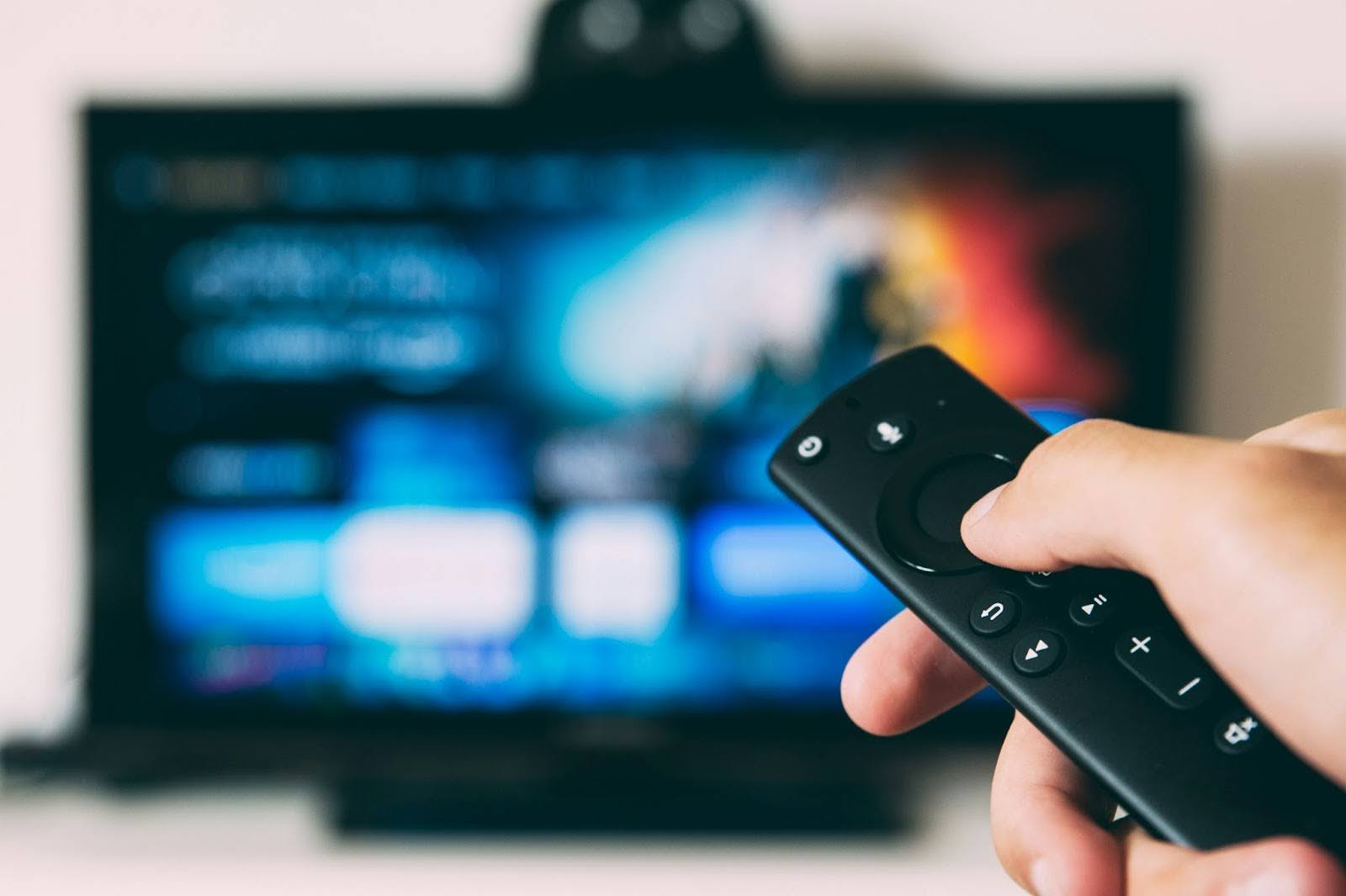Politics Feature
Were Congressional Insiders Helping the Capitol Hill Attack?
02 Feb, 21

Alexandria Ocasio-Cortez, left, the winner of New York's Democratic Congressional primary, greets supporters following her victory, along with Saikat Chakrabarti, founder of Justice Democrats and senior adviser for her campaign.
Mark Lennihan/AP/Shutterstock
Update 2/2/2021: On Monday night, Representative Ocasio-Cortez once again took to Instagram Live to share her experience of the attack on the Capitol building in more detail.
She talked about the terrifying moment when an unknown man made his way into her office shouting, “Where is she?” as she hid behind a bathroom door believing that he was likely there to kill her — “this was the moment where I thought everything was over,”
Even the realization that this man was a Capitol police officer didn’t feel like a guarantee that he was looking out for her safety — an uncertainty that friendly interactions between police and attackers would later justify. She described sheltering in Representative Katie Porter’s office as they received reports of bombs being found and made contingency plans for escaping out a window or into a safer office.
The intensity and detail of her account are striking, as is her decision to share a personal context for how she processes the experience, relating that she is “a survivor of sexual assault,” and noting that “when we go through trauma, trauma compounds on each other.”
But perhaps the most important moment of the stream was her comparison of recent calls for us all to “move on” from the insurrection — often from those who stoked the misinformation that brought it on — to “the tactics of abusers,” saying, “this is at a point where it’s not about the difference of political opinion. This is about just basic humanity.”
On Tuesday night, Representative Alexandria Ocasio-Cortez of New York’s 14th congressional district took to Instagram Live to share her experience of last week’s frightening events at Capitol Hill.
Ocasio-Cortez has made a point of making herself accessible to the public, sharing her cooking, her gaming, and even her struggle to find affordable housing through social media. It’s a practice that has contributed to the adoration of her fans as well as the vitriol of her detractors. But she has never shared anything quite as personal and affecting as her experience of the attempted coup on January 6th.
In a discussion that lasted over an hour, she spoke both broadly on the topic of trauma, and particularly about how Wednesday’s events had been traumatic for herself and others who were present in the Capitol building. Among the more dramatic details she included were the “very close encounter where [she] thought [she] was going to die,” and the assertion that “it is not an exaggeration to say that many, many members of the House were nearly assassinated.”
She withheld many of the details for the sake of “security concerns,” and that lack of specificity will no doubt be used by her opponents to claim that she is being overly dramatic for political gain. But a look at the timeline of events — with special attention to the people who brought molotov cocktails, body armor, and zip-tie restraints — shows how close things came to being far more disastrous.
Congress members likely came within moments of encountering people who had prepared for violence, one of whom had placed them on a list of “good guys” and “bad guys.” The fact that the president, his advisors, and some of Ocasio-Cortez’s fellow members of Congress encouraged a false sense that democracy had been undermined, and even that violent action might be necessary was not lost on her.
What other message were President Trump’s supporters to take from him telling them “if you don’t fight like hell, you’re not going to have a country anymore?” What were they supposed to make of Donald Trump Jr.’s message to Republicans who wouldn’t vote to overturn the election results: “we’re coming for you,” not to mention Rudy Giuliani’s bizarre “trial by combat” remark.
Republican senators Ted Cruz of Texas and Josh Hawley of Missouri, meanwhile, have been cited as key figures in the chaos. Even after the insurrection — and against the expressed wishes of majority leader Mitch McConnell and their own party’s leadership — they objected against certifying the Electoral College votes securing Joe Biden’s election. They held up baseless claims of fraud and irregularities in what many view as an early effort to position themselves for their own presidential bids in 2024.
But amid calls for Cruz, Hawley, and their allies in the House to resign, be removed, or at least to be censured, there is an open question as to whether congressional participation in Wednesday’s violence went much further than these self-serving objections. As Ocasio-Cortez put it in her livestream, “there was a sense that something was wrong from the inside.”
As perhaps the most recognized target of Right-wing hatred in Congress — with the possible exception of Nancy Pelosi — AOC was not only concerned about violent intruders, but about the possibility that they would be helped by her colleagues in Congress. She specifically expressed her fear that “Q-Anon and white-supremacist sympathizers” within Congress would disclose her location and “create opportunities to allow [her] to be hurt, kidnapped, et cetera.”
She therefore avoided joining her fellow Congress members in the secure location where many of them were sheltering, opting instead to fend for herself in that dire scenario. And her fears turned out to be justified, as Colorado’s newest congressional representative, Lauren Boebert — who was seated last week — tweeted of Nancy Pelosi’s whereabouts “the speaker has been removed from the chambers,” possibly at the same moment that a rioter was shouting at Capitol Police, “tell Pelosi we’re coming for her.”
Boebert, who has expressed her “hope” that the absurd QAnon conspiracy — of the global elite participating in human trafficking, pedophilia, and cannibalism — is true, had reportedly been advised by the House Sergeant at Arms not to make any sort of post on social media. But before the violence kicked off, Boebert had tweeted “today is 1776,” in a possible endorsement of armed revolution.
She is now facing calls to resign or be removed, but her tweets were not the only indication that there may have been foul play within the halls of Congress. Representative Mikie Sherrill of New Jersey’s 11th district has reported witnessing unnamed members of Congress showing citizens around the Capitol building on January 5th in what she believes was intended as “reconnaissance for the next day.”
N.J. congresswoman accuses lawmakers of helping to incite deadly riotswww.youtube.com
Perhaps most worrying is the evidence of apparent sabotage that Sarah Groh — Representative Ayanna Pressley of Ohio’s chief of staff — reported finding in Pressley’s congressional office. While Representative Pressley and her staff were attempting to barricade themselves inside, they found that panic buttons — which they previously tested in drills — had been completely removed. “”Every panic button in my office had been torn out — the whole unit.”
Pressley, a Black woman and prominent member of the young congressional progressives known as “The Squad” — along with Alexandria Ocasio-Cortez, Ilhan Omar, Rashida Tlaib, Cori Bush, and Jamaal Bowman — had previously been the recipient of numerous racist threats against her life. She and her staff had been prepared for the necessity of a lockdown.
But someone — presumably with intimate knowledge of her office — had removed those preparations. Pressley and her staff were instead forced to evacuate to a secure location under the protection of Capitol police whose loyalties they had every reason to doubt.
After all the chaos settled and long-delayed National Guard troops finally dispersed the rioters, five people were left dead or dying, but the situation could easily have been much worse. For the first time in our nation’s history, a joint session of Congress was disrupted, with senators and representatives forced to evacuate under the risk of mob violence.
If that evacuation had happened a little more slowly, how many members of Congress might have died? If the people chanting “hang Mike Pence,” had gotten their way, they could have killed the man whose role in certifying the election is laid out in the constitution. They could have had the opportunity to eliminate the next three people in line for the presidency.
What would that have meant for the prospects of reconvening Congress? Or for impeaching the president — as the House voted to do one week after the attempted coup?
Currently, there are over 6,000 American troops occupying Washington D.C. — more than in Iraq and Afghanistan combined — in anticipation of further violence in the lead-up to Joe Biden’s inauguration. The people in charge seem to be acknowledging the threat in a way they weren’t before.
As investigations into last week’s sedition come into focus, it may turn out that there was nothing more sinister than poor planning involved in allowing such a dangerous breach of security. Or it may turn out that there were deliberate efforts within our government to bolster a violent overthrow of our Democratic institutions.
In either case, it’s clear that we need to start taking the threat of misinformation and the rising tide of American fascism seriously. Purging social media of dangerous lies is a start and the people who spread them — including President Trump — was a good start.
The next step is to remove traitors to American Democracy — Senators Cruz and Hawley, Representative Boebert and more — from office. Until we do so, calls for “unity” and “healing” should be treated as the insults they are.
- The Attack on Capitol Hill Wasn’t Black Americans’ Fight – Popdust ›
- 6 Absurd Responses to the Collapse of American Democracy … ›












